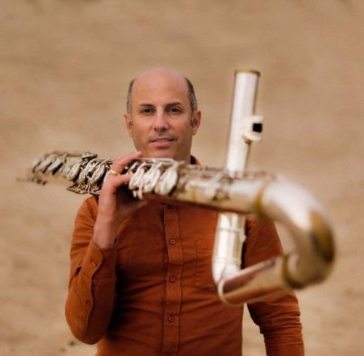In order to meet the challenges of rapidly changing cultural life in the 21st century, professional musicians have to be lifelong learners, drawing on a wide range of knowledge and skills. To be successful in a variety of roles, they need a reflective and responsive attitude to change.This chapter addresses the concept of lifelong learning and its meaning for professional musicians, as well as the ways institutions and teachers can facilitate attitudes and capacities for lifelong learning. A biographical perspective will provide a lens through which concepts of lifelong learning can be seen through the interconnection of musicians' personal and professional development. Lifelong learning in the aggregate complex of music education, (i.e., educational organizations and learning environments, teachers, students, and graduates) is especially relevant and will be addressed. The chapter finishes with some recommendations related to implementing the concept of lifelong learning in music education.
DOCUMENT
In order to meet the challenges of rapidly changing cultural life in the twenty-first century, professional musicians need to be lifelong learners, drawing on a wide range of knowledge and skills. To be succesful in a variety of roles, they require a reflective and responsive attitude to change. This chapter addresses the concept and meaning of lifelong learning among professional musicians, as well as the ways institutions and teachers can facilitate attitudes and capacities for lifelong learning.
DOCUMENT
As the Dutch population is aging, the field of music-in-healthcare keeps expanding. Healthcare, institutionally and at home, is multiprofessional and demands interprofessional collaboration. Musicians are sought-after collaborators in social and healthcare fields, yet lesser-known agents of this multiprofessional group. Although live music supports social-emotional wellbeing and vitality, and nurtures compassionate care delivery, interprofessional collaboration between musicians, social work, and healthcare professionals remains marginal. This limits optimising and integrating music-making in the care. A significant part of this problem is a lack of collaborative transdisciplinary education for music, social, and healthcare students that deep-dives into the development of interprofessional skills. To meet the growing demand for musical collaborations by particularly elderly care organisations, and to innovate musical contributions to the quality of social and healthcare in Northern Netherlands, a transdisciplinary education for music, physiotherapy, and social work studies is needed. This project aims to equip multiprofessional student groups of Hanze with interprofessional skills through co-creative transdisciplinary learning aimed at innovating and improving musical collaborative approaches for working with vulnerable, often older people. The education builds upon experiential learning in Learning LABs, and collaborative project work in real-life care settings, supported by transdisciplinary community forming.The expected outcomes include a new concept of a transdisciplinary education for HBO-curricula, concrete building blocks for a transdisciplinary arts-in-health minor study, innovative student-led approaches for supporting the care and wellbeing of (older) vulnerable people, enhanced integration of musicians in interprofessional care teams, and new interprofessional structures for educational collaboration between music, social work and healthcare faculties.
Students in Higher Music Education (HME) are not facilitated to develop both their artistic and academic musical competences. Conservatoires (professional education, or ‘HBO’) traditionally foster the development of musical craftsmanship, while university musicology departments (academic education, or ‘WO’) promote broader perspectives on music’s place in society. All the while, music professionals are increasingly required to combine musical and scholarly knowledge. Indeed, musicianship is more than performance, and musicology more than reflection—a robust musical practice requires people who are versed in both domains. It’s time our education mirrors this blended profession. This proposal entails collaborative projects between a conservatory and a university in two cities where musical performance and musicology equally thrive: Amsterdam (Conservatory and University of Amsterdam) and Utrecht (HKU Utrechts Conservatorium and Utrecht University). Each project will pilot a joint program of study, combining existing modules with newly developed ones. The feasibility of joint degrees will be explored: a combined bachelor’s degree in Amsterdam; and a combined master’s degree in Utrecht. The full innovation process will be translated to a transferable infrastructural model. For 125 students it will fuse praxis-based musical knowledge and skills, practice-led research and academic training. Beyond this, the partners will also use the Comenius funds as a springboard for collaboration between the two cities to enrich their respective BA and MA programs. In the end, the programme will diversify the educational possibilities for students of music in the Netherlands, and thereby increase their professional opportunities in today’s job market.

Ballet en moderne dans zijn een vorm van topsport. De druk op dansers is enorm. Lange en intensieve werkdagen, veel reizen en verschillende werkplekken maken het lastig om lichaam en geest goed te verzorgen. Hierdoor liggen blessures en mentale klachten op de loer. Nederlandse dansgezelschappen willen meer aandacht gaan besteden aan preventieve maatregelen om fysieke en mentale problemen bij hun dansers te voorkomen. Het ontbreekt hen echter aan kennis en kunde om dit innovatieve vraagstuk op te kunnen pakken. Het Nationale Ballet en het Scapino Ballet hebben het lectoraat Performing Arts Medicine van Codarts (Hogeschool voor de Kunsten Rotterdam) benaderd om antwoord te krijgen op de vraag hoe dansers op de hoogste podia, op gezonde wijze, hun beste performance kunnen laten zien. Gezamenlijk is deze praktijkvraag omgevormd naar drie onderzoeksdoelstellingen: 1. Opstellen van meetinstrumenten om de fysieke en mentale gezondheid van dansers te screenen en te monitoren; 2. Ontwerpen van een web-based systeem dat automatisch en real-time informatie uit de ontwikkelde meetinstrumenten kan inlezen, analyseren en interpreteren; 3. Ontwikkelen van een Fit to Perform protocol dat aanbevelingen geeft ten aanzien van het verbeteren van de fysieke en mentale gesteldheid van de danser. Het consortium bestaat uit de volgende organisaties: - Praktijkgerichte onderzoeksinstellingen: Codarts Rotterdam en Hogeschool van Amsterdam; - Universiteiten: ErasmusMC, Technische Universiteit Eindhoven en Vrije Universiteit Amsterdam; - Praktijkinstellingen: Het Nationale Ballet en het Scapino Ballet; - Overige instellingen: het Nederlands Paramedisch Instituut (NPi) en het Nationale Centrum Performing Arts (NCPA). Bij de samenstelling van het consortium is gekozen voor een goede mix tussen praktijkorganisaties, onderzoeksinstituten en onderwijsinstellingen. Daarnaast is er sprake van cross-sectorale samenwerking doordat kennis vanuit de podiumkunsten, sport, gezondheidszorg, onderwijs en technologie met elkaar verbonden wordt.